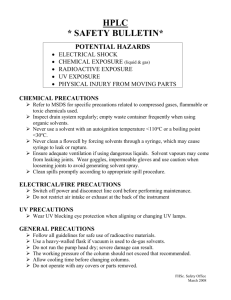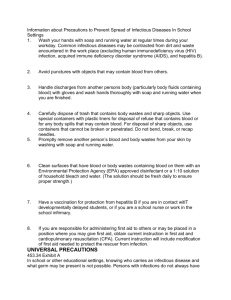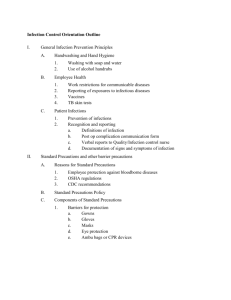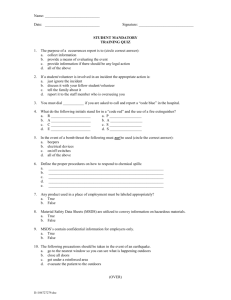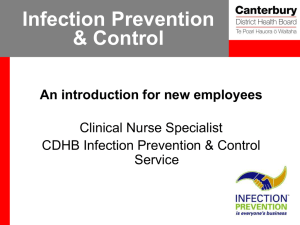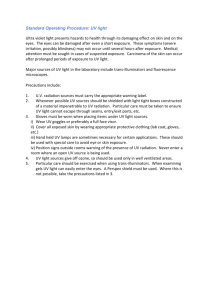Standard Precautions - Remote Health Atlas
advertisement
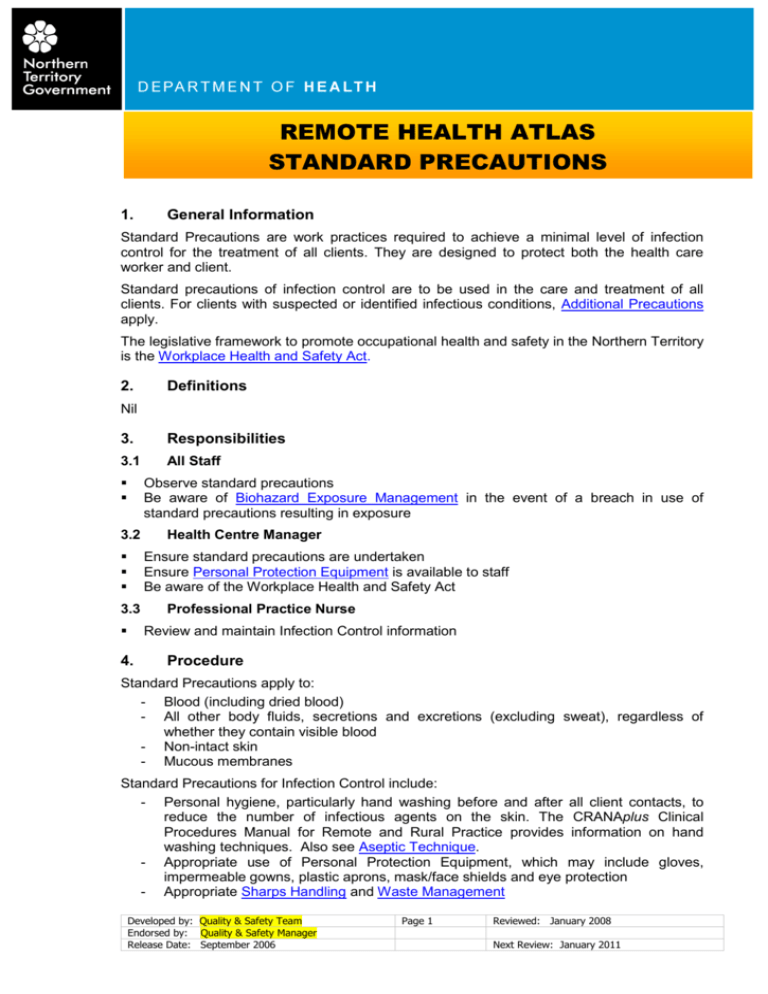
STANDARD PRECAUTIONS REMOTE HEALTH ATLAS – Section 27: INFECTION CONTROL REMOTE HEALTH ATLAS STANDARD PRECAUTIONS 1. General Information Standard Precautions are work practices required to achieve a minimal level of infection control for the treatment of all clients. They are designed to protect both the health care worker and client. Standard precautions of infection control are to be used in the care and treatment of all clients. For clients with suspected or identified infectious conditions, Additional Precautions apply. The legislative framework to promote occupational health and safety in the Northern Territory is the Workplace Health and Safety Act. 2. Definitions Nil 3. Responsibilities 3.1 All Staff Observe standard precautions Be aware of Biohazard Exposure Management in the event of a breach in use of standard precautions resulting in exposure 3.2 Health Centre Manager Ensure standard precautions are undertaken Ensure Personal Protection Equipment is available to staff Be aware of the Workplace Health and Safety Act 3.3 Professional Practice Nurse Review and maintain Infection Control information 4. Procedure Standard Precautions apply to: - Blood (including dried blood) - All other body fluids, secretions and excretions (excluding sweat), regardless of whether they contain visible blood - Non-intact skin - Mucous membranes Standard Precautions for Infection Control include: - Personal hygiene, particularly hand washing before and after all client contacts, to reduce the number of infectious agents on the skin. The CRANAplus Clinical Procedures Manual for Remote and Rural Practice provides information on hand washing techniques. Also see Aseptic Technique. - Appropriate use of Personal Protection Equipment, which may include gloves, impermeable gowns, plastic aprons, mask/face shields and eye protection - Appropriate Sharps Handling and Waste Management Developed by: Quality & Safety Team Endorsed by: Quality & Safety Manager Release Date: September 2006 Page 1 Reviewed: January 2008 Next Review: January 2011 STANDARD PRECAUTIONS REMOTE HEALTH ATLAS – Section 27: INFECTION CONTROL 4.1 Appropriate reprocessing of reusable equipment and instruments; including appropriate use of disinfectants (see Instrument Cleaning & Sterilisation) Use of single use equipment Environmental controls, including design and maintenance of premises, cleaning and spill management Managing a Breach in the use of Standard Precautions A breach occurs when routine practices of infection control breakdown, such as handling of sharps resulting in a needle-stick injury, personal protective equipment not used appropriately, or re-usable equipment used prior to reprocessing. For details see Biohazard Exposure Management. 5. Forms Nil 6. References and Supporting Documents Related Atlas Items: Additional Precautions Airborne Precautions Aseptic Technique Biohazard Exposure Management Contact Precautions Droplet Precautions Instrument Cleaning & Sterilisation Personal Protection Equipment Sharps Handling Skin Precautions Staff Immunisation Waste Management Flowchart – Standard & Additional Precautions Royal Darwin Hospital Infection Control Manual Workplace Health and Safety Act CRANAplus Clinical Procedures Manual for Remote and Rural Practice The ACHS EQuIP 4 Guide Part 1 Accreditation, Standards, Guidelines. Criterion 1.5.2 Infection Control System. The Australian Council on Healthcare Standards 2006. Developed by: Quality & Safety Team Endorsed by: Quality & Safety Manager Release Date: September 2006 Page 2 Reviewed: January 2008 Next Review: January 2011
